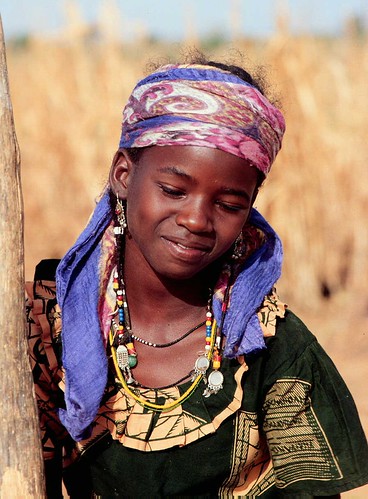The quotes below are a distillation of some of the sentiments as well as celebratory remarks expressed at an event honouring 60 new 2010 African Women in Agricultural Research and Development Fellowships announced at the World Agroforestry Centre, in Nairobi, Kenya, on 27 July 2010.
* * *
‘Women of Africa are first of all daughters, then wives, mothers and caregivers. They farm the fields, milk the cows and generate the incomes that put food on our tables—and ensure that our children are educated. We celebrate them today while honouring the research women that stand behind our farming women and men.’
—Stella Williams, retired Nigerian professor of agricultural economics and Chair of the Steering Committee of the CGIAR African Women in Agricultural Research and Development (AWARD) Program
‘We are announcing 60 AWARD Fellowships today. We chose 60 women representing 20 different disciplines in whom to invest in a two-year professional development program, a journey to empower them in their work to alleviate and hunger in Africa.
‘These are the women who are changing the face of African agriculture. Like our Fulani AWARD Fellow this year, who is bringing artificial insemination to West African villages, these women "are not interested in being smallholders".
‘Women represent less than 1 in 4 agricultural researchers in Africa and less than 1 in 7 of those in leadership. Experts estimate it will take another 20 years for women to reach parity with men in this continent’s agricultural affairs. We created AWARD to change that equation.’
—Vicki Wilde, Director of the African Women in Agricultural Research and Development (AWARD) and Gender and Diversity programs of the Consultative Group on International Agricultural Research
‘The road out of poverty is lined with women food producers and sellers.’
— Ephraim Mukisira, Director of the Kenya Agricultural Research Institute
‘We have enormous talent here in Africa. I have a wife who has several scientific degrees and is several times smarter than I am. I recognize that. My family recognizes that. We must recognize talent. When women become empowered, societies prosper.
‘Agriculture is our lifeline. Almost 80 percent of Africans depend on it. We still have 300 million people living on less than a dollar a day. Our continent’s future is tied to our continent’s agriculture.
‘Women are the face of African agriculture. We need more relevant training for the unique conditions of Africa. We need women to address issues that have not been on men’s radar screens.'
—Akinwumi Adesina, Vice President for Policy and Partnerships of the Alliance for a Green Revolution in Africa
‘We need women represented in our labs as well as in our fields.’
—Hilary Rodham Clinton, US Secretary of State (quoted by Adesina)
‘So much is at stake.’
—Ruth Amata, plant pathologist, senior research officer at the Kenya Agricultural Research Institute and 2010 AWARD Fellow


And for those of you still uncertain about the value of women in developing country economics, here's a quote from a recent (12 July 2010) Time Magazine article on the Global Forum held in Cape Town on 27 June 2010:
'There is a growing consensus among development economists that the key driver of China's stellar success in the past 20 years has not been government policy (however effective it may have been) or the technocratic skills of its public-sector managers (though they are certainly impressive). It is that for two generations — going back to the dark, autarkic days of Maoism — China has educated its women. China would not have been able to become the workshop of the world if its factory workers, mainly girls and women, did not have the literacy and numeracy essential to perform assembly tasks. If there is one lesson from China that African nations (and ones in South Asia too) need to learn, it is that you cannot build a modern economy if you ignore the innate talents of 50% of your population.'
Time special on the Global Forum: http://www.time.com/time/specials/packages/article/0,28804,2000110_2000287_2001036-1,00.html